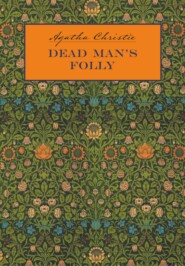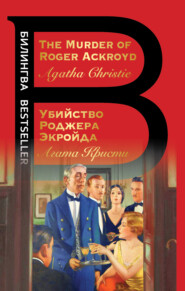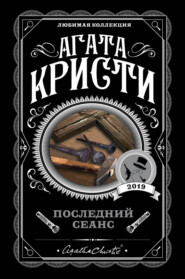По всем вопросам обращайтесь на: info@litportal.ru
(©) 2003-2024.
✖
Destination Unknown
Автор
Год написания книги
2019
Настройки чтения
Размер шрифта
Высота строк
Поля
Hilary ordered herself a good meal with a half-bottle of wine. She was feeling a heady kind of excitement. She thought to herself, ‘What is this after all, but the last adventure?’ Then she ordered a bottle of Vichy water to be sent up to her room and went straight up after leaving the dining-room.
The waiter brought the Vichy, uncapped it, placed it on the table, and wishing her good night, left the room. Hilary drew a sigh of relief. As he closed the door after him, she went to it and turned the key in the lock. She took from the drawer of the dressing-table the four little packets she had obtained from the chemists’, and unwrapped them. She laid the tablets out on the table and poured herself out a glass of Vichy water. Since the drug was in tablet form, she had only to swallow the tablets, and wash them down with the Vichy water.
She undressed, wrapped her dressing-gown round her and came back to sit by the table. Her heart beat faster. She felt something like fear now, but the fear was half fascination and not the kind of flinching that would have tempted her to abandon her plan. She was quite calm and clear about that. This was escape at last—real escape. She looked at the writing-table, debating whether she would leave a note. She decided against it. She had no relations, no close or dear friends, there was nobody to whom she wished to say goodbye. As for Nigel, she had no wish to burden him with useless remorse even if a note from her would have achieved that object. Nigel would read presumably in the paper that a Mrs Hilary Craven had died of an overdose of sleeping-tablets in Casablanca. It would probably be quite a small paragraph. He would accept it at its face value. ‘Poor old Hilary,’ he would say, ‘bad luck’—and it might be that, secretly, he would be rather relieved. Because she guessed that she was, slightly, on Nigel’s conscience, and he was a man who wished to feel comfortable with himself.
Already Nigel seemed very far away and curiously unimportant. There was nothing more to be done. She would swallow the pills and lie down on her bed and sleep. From that sleep she would not wake. She had not, or thought she had not, any religious feeling. Brenda’s death had shut down on all that. So there was nothing more to consider. She was once again a traveller as she had been at Heathrow Airport, a traveller waiting to depart for an unknown destination, unencumbered by baggage, unaffected by farewells. For the first time in her life she was free, entirely free, to act as she wished to act. Already the past was cut away from her. The long aching misery that had dragged her down in her waking hours was gone. Yes. Light, free, unencumbered! Ready to start on her journey.
She stretched out her hand towards the first tablet. As she did so there came a soft, discreet tap on the door. Hilary frowned. She sat there, her hand arrested in mid-air. Who was it—a chambermaid? No, the bed had already been turned down. Somebody, perhaps, about papers or passport? She shrugged her shoulders. She would not answer the door. Why should she bother? Presently whoever it was would go away and come back at some further opportunity.
The knock came again, a little louder this time. But Hilary did not move. There could be no real urgency, and whoever it was would soon go away.
Her eyes were on the door, and suddenly they widened with astonishment. The key was slowly turning backwards round the lock. It jerked forward and fell on the floor with a metallic clang. Then the handle turned, the door opened and a man came in. She recognized him as the solemn, owlish young man who had been buying toothpaste. Hilary stared at him. She was too startled for the moment to say or do anything. The young man turned round, shut the door, picked the key up from the floor, put it into the lock and turned it. Then he came across towards her and sat down in a chair the other side of the table. He said, and it seemed to her a most incongruous remark:
‘My name’s Jessop.’
The colour rose sharply in Hilary’s face. She leaned forward. She said with cold anger:
‘What do you think you’re doing here, may I ask?’
He looked at her solemnly—and blinked.
‘Funny,’ he said. ‘I came to ask you that.’ He gave a quick sideways nod towards the preparations on the table. Hilary said sharply:
‘I don’t know what you mean.’
‘Oh yes, you do.’
Hilary paused, struggling for words. There were so many things she wanted to say. To express indignation. To order him out of the room. But strangely enough, it was curiosity that won the day. The question rose to her lips so naturally that she was almost unaware of asking it.
‘That key,’ she said, ‘it turned, of itself, in the lock?’
‘Oh, that!’ The young man gave a sudden boyish grin that transformed his face. He put his hand into his pocket and, taking out a metal instrument, he handed it to her to examine.
‘There you are,’ he said, ‘very handy little tool. Insert it into the lock the other side, it grips the key and turns it.’ He took it back from her and put it in his pocket. ‘Burglars use them,’ he said.
‘So you’re a burglar?’
‘No, no, Mrs Craven, do me justice. I did knock, you know. Burglars don’t knock. Then, when it seemed you weren’t going to let me in, I used this.’
‘But why?’
Again her visitor’s eyes strayed to the preparations on the table.
‘I shouldn’t do it if I were you,’ he said. ‘It isn’t a bit what you think, you know. You think you just go to sleep and you don’t wake up. But it’s not quite like that. All sorts of unpleasant effects. Convulsions sometimes, gangrene of the skin. If you’re resistant to the drug, it takes a long time to work, and someone gets to you in time and then all sorts of unpleasant things happen. Stomach pump. Castor oil, hot coffee, slapping and pushing. All very undignified, I assure you.’
Hilary leaned back in her chair, her eyelids narrowed. She clenched her hands slightly. She forced herself to smile.
‘What a ridiculous person you are,’ she said. ‘Do you imagine that I was committing suicide, or something like that?’
‘Not only imagine it,’ said the young man called Jessop, ‘I’m quite sure of it. I was in that chemist’s, you know, when you came in. Buying toothpaste, as a matter of fact. Well, they hadn’t got the sort I like, so I went to another shop. And there you were, asking for sleeping-pills again. Well, I thought that was a bit odd, you know, so I followed you. All those sleeping-pills at different places. It could only add up to one thing.’
His tone was friendly, off-hand, but quite assured. Looking at him Hilary Craven abandoned pretence.
‘Then don’t you think it is unwarrantable impertinence on your part to try and stop me?’
He considered the point for a moment or two. Then he shook his head.
‘No. It’s one of those things that you can’t not do—if you understand.’
Hilary spoke with energy. ‘You can stop me for the moment. I mean you can take the pills away—throw them out of the window or something like that—but you can’t stop me from buying more another day or throwing myself down from the top floor of the building, or jumping in front of a train.’
The young man considered this.
‘No,’ he said. ‘I agree I can’t stop you doing any of those things. But it’s a question, you know, whether you will do them. Tomorrow, that is.’
‘You think I shall feel differently tomorrow?’ asked Hilary, faint bitterness in her tone.
‘People do,’ said Jessop, almost apologetically.
‘Yes, perhaps,’ she considered. ‘If you’re doing things in a mood of hot despair. But when it’s cold despair, it’s different. I’ve nothing to live for, you see.’
Jessop put his rather owlish head on one side, and blinked.
‘Interesting,’ he remarked.
‘Not really. Not interesting at all. I’m not a very interesting woman. My husband, whom I loved, left me, my only child died very painfully of meningitis. I’ve no near friends or relations. I’ve no vocation, no art or craft or work that I love doing.’
‘Tough,’ said Jessop appreciatively. He added, rather hesitantly: ‘You don’t think of it as—wrong?’
Hilary said heatedly: ‘Why should it be wrong? It’s my life.’
‘Oh yes, yes,’ Jessop repeated hastily. ‘I’m not taking a high moral line myself, but there are people, you know, who think it’s wrong.’
Hilary said:
‘I’m not one of them.’
Mr Jessop said, rather inadequately:
‘Quite.’
He sat there looking at her, blinking his eyes thoughtfully.
Hilary said:
‘So perhaps now, Mr—er—’
‘Jessop,’ said the young man.

















